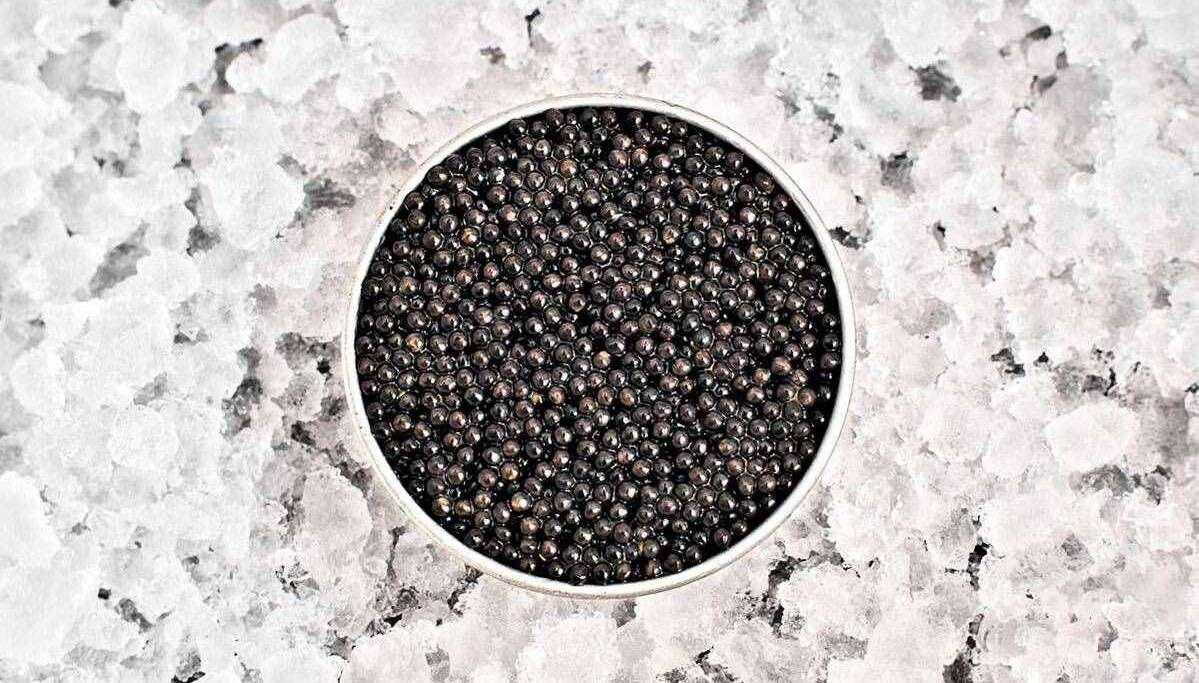Flying Car You Can Park in Your Garage Lifts Off on Maiden Voyage: Meet the $200,000 Switchblade
The highly-anticipated two-seater received 2,300 reservations from 57 countries and all 50 states in the US.

A long-destructive industry is now experiencing a sustainable revolution thanks to a determined German scientist.
The industry: caviar. The revolution: harvesting those tiny black pearls of culinary glory without harming the sturgeon gestating them.
The eggs of a female sturgeon, caviar is a treasured commodity, but even though this ancient fish survived the extinction event that killed the dinosaurs, all 27 species are Endangered or Critically Endangered in the wild according to the IUCN. All commercial caviar production today is from aquaculture.
In the early 2000s, there was a caviar crisis, leading to a depletion of wild stocks, and an increase in illegally sourced caviar. According to one caviar supplier, by 2004 consumers and chefs had lost confidence in the industry, as they couldn't be sure it wasn't taken from a wild fish, or processed in a garage somewhere using Borax as a preservative.
Enter "no-kill caviar," a licensed aquaculture technique developed by polar and marine scientist Angela Köhler from the Alfred Wegener Institute (AWI) in Germany.
She had gone to the Caspian Sea as part of her research into understanding the threat to sturgeons there from pollution. During her work, she went to attend a caviar conference where she saw a fully mature female fish killed only for the caviar harvesters to find the eggs were too close to spawning and therefore not suited for sale.
Now, the AWI offers a license to caviar-culturalists to use their patented method of harvesting caviar from live sturgeon in a method more akin to work in a maternity ward than a slaughterhouse.
Female sturgeon, who bear eggs at around 8 years of age, are monitored with ultrasounds until their eggs are ready, after which they're gently massaged until their eggs are released naturally. In AWI's innovative process, signaling molecules in very small natural concentrations activate a machinery of enzymes within the eggs that stabilize their membranes in milliseconds.
"If conducted correctly, the quality of the caviar is superb," AWI writes on their website. "The caviar produced according to the AWI method is also particularly clean and pure as has been shown in high-resolution microscopy images."
"There are no blood vessels and follicle cells sticking to the eggs' surface. Thus, the caviar does not need any preservatives (Borax), has a long shelf life of up to 9 months, and exhibits a fine fresh marine taste."
Slow-growing, predatory fish that can grow up to 1.5 tons, sturgeon are a marvel of riverine evolution, but have suffered as a result of overfishing and development, particularly of dams that isolate their territory and dirty the sections of river they live in.
Consequently, trading sturgeon products is strictly controlled by the CITES Treaty, and no wild catches are permitted in most areas of the globe.
In America, there's already a no-kill caviar operation supplying a number of exclusive restaurants. The California Caviar Company, or the CCC, was the first in the country to license the patented method from Köhler, and today owns 20,000 sturgeon for sustainable caviar production.
"We visit the farms and have a look at whether they are candidates for an AWI license," Köhler told The Guardian. "We also give advice on how to install a caviar lab, apply the patented processes, and train the staff."
Having already licensed farms in the UK, Iceland, Sweden, and Ireland, Köhler has received requests from China, Iran, Russia, and other Caspian countries.
Long thought of as cuisine of the rich and haughty, a new breed of caviar-culturalists are looking to carry on the enjoyment of this time-honored culinary treat while saving a legendary and fantastical fish from extinction.
SHARE This Inspiring Change Of Fortunes With Your Friends…
Be the first to comment